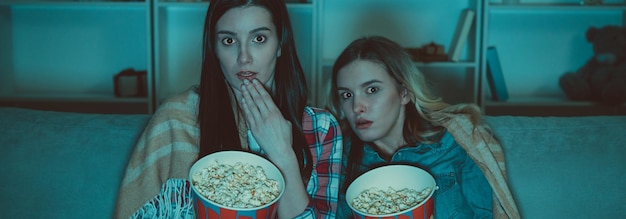Overrated K-Dramas: 5 Shows That Didn’t Live Up to the Hype

Beyond the Hype: A Critical Look at the 5 Most Overrated K-Dramas of the Last 6 Months explores why certain series, despite high expectations and initial buzz, ultimately failed to resonate with audiences and critics alike, examining factors such as weak plot development, poor characterization, and excessive reliance on tropes.
The world of K-dramas is vast and varied, but not every series lives up to the hype. Beyond the Hype: A Critical Look at the 5 Most Overrated K-Dramas of the Last 6 Months dives into the shows that promised much but delivered little, leaving viewers underwhelmed.
Assessing the K-Drama Landscape
The surge in popularity of K-dramas has brought a plethora of series to our screens, each vying for attention. However, with more options available, discerning which dramas truly shine becomes challenging. Some shows, despite significant marketing and pre-release buzz, fail to meet expectations, leaving viewers and critics questioning their merits.
The Role of Marketing and Expectations
The hype surrounding a K-drama can significantly influence its initial reception. Aggressive marketing campaigns, coupled with star-studded casts or intriguing premises, can create immense anticipation. When the actual series doesn’t align with these expectations, disappointment is inevitable.
Critical Analysis vs. Popular Opinion
It’s crucial to differentiate between critical assessment and popular opinion. A drama might garner a large viewership due to its actors or genre, but it may still suffer from subpar writing, directing, or acting. This analysis digs deeper than surface-level appeal.
- Plot Holes and Inconsistencies: Many overrated dramas struggle with convoluted or illogical storylines.
- Character Development Issues: Characters may be one-dimensional or undergo unrealistic transformations.
- Pacing Problems: Slow or rushed pacing can disrupt the viewer’s engagement.
Ultimately, assessing the K-drama landscape requires a balanced perspective, considering both the initial hype and the actual quality of the series. Overrated dramas often expose the gap between expectation and reality.
“The King: Eternal Monarch” – Royal Disappointment
“The King: Eternal Monarch” arrived with much fanfare, boasting a stellar cast and a unique parallel universe concept. However, despite the high production value and the presence of Lee Min-ho, the drama failed to capture the hearts of many viewers.
Plot Complications and Confusing Narrative
One of the primary criticisms of “The King: Eternal Monarch” was its overly complicated plot. The parallel universe concept, while intriguing, was often executed in a confusing manner, making it difficult for viewers to follow the storyline. Numerous subplots and time jumps added to the narrative muddle.
Lack of Chemistry Between Leads
Despite the star power of Lee Min-ho and Kim Go-eun, the chemistry between the lead characters felt lacking. Their romance seemed forced, and many viewers struggled to connect with their relationship. This lack of emotional investment detracted from the overall viewing experience.

- Unclear Rules of the Universe: The rules governing the parallel universes were inconsistent and poorly explained.
- Slow Pacing: The drama suffered from slow pacing, with long stretches of exposition and minimal character development.
- Unsatisfying Resolution: The ending felt rushed and failed to resolve many of the plot’s lingering questions.
In conclusion, “The King: Eternal Monarch,” despite its grandiose premise and popular cast, ultimately fell short due to its convoluted plot, lack of chemistry between the leads, and unsatisfying resolution.
“Backstreet Rookie” – Offensive and Unfunny
“Backstreet Rookie” faced significant backlash for its problematic portrayal of cultural and social issues. While marketed as a lighthearted romantic comedy, the drama was criticized for its reliance on stereotypes and offensive humor.
Cultural Insensitivity and Stereotypes
The drama was heavily criticized for its portrayal of various cultures and ethnicities. Many scenes were deemed insensitive and promoted harmful stereotypes. This cultural insensitivity alienated a large portion of the audience and sparked widespread controversy.
Unfunny and Cringeworthy Humor
The humor in “Backstreet Rookie” often missed the mark, relying on outdated and cringeworthy gags. What was intended to be comedic often came across as offensive and inappropriate. This poor attempt at humor further detracted from the drama’s appeal.
- Objectification of Women: Many scenes objectified female characters, contributing to a sexist portrayal.
- Inappropriate Age Gaps: The romantic storyline between characters with significant age differences raised ethical concerns.
- Poor Writing Quality: The overall writing quality was subpar, with weak plot development and uninspired dialogue.
In summary, “Backstreet Rookie” failed to deliver the lighthearted comedy it promised, instead alienating viewers with its cultural insensitivity, offensive humor, and poor writing.
“Record of Youth” – Missed Opportunities
“Record of Youth” had the potential to be a compelling coming-of-age story, but it ultimately fell short due to its predictable plot and underdeveloped characters. The drama explored the challenges faced by young individuals in the entertainment industry, but failed to delve deeply into their struggles.
Predictable Plot and Lack of Innovation
One of the main criticisms of “Record of Youth” was its predictable plot. The storyline followed familiar tropes and lacked originality, leaving viewers feeling underwhelmed. The drama failed to offer any fresh perspectives on the challenges faced by young people.

Underdeveloped Characters and Relationships
The characters in “Record of Youth” lacked depth and complexity. Their relationships felt superficial, and viewers struggled to connect with their emotional journeys. The underdeveloped nature of the characters hindered the drama’s ability to resonate with audiences.
- Superficial Exploration of Themes: The drama touched on various themes, but failed to explore them in a meaningful way.
- Lack of Stakes: The stakes in the drama felt low, making it difficult for viewers to invest in the characters’ struggles.
- Inconsistent Character Motivations: The characters’ motivations often felt inconsistent and illogical.
In conclusion, “Record of Youth,” despite its promising premise, failed to capitalize on its potential due to its predictable plot, underdeveloped characters, and superficial exploration of key themes.
“Sisyphus: The Myth” – Sci-Fi Confusion
“Sisyphus: The Myth” attempted to blend science fiction with mystery and action, but the result was a convoluted and confusing narrative that left many viewers scratching their heads. The drama’s complex plot and excessive reliance on sci-fi elements overshadowed its potential.
Overly Complex and Convoluted Plot
The plot of “Sisyphus: The Myth” was notoriously complex, involving time travel, alternate realities, and numerous factions vying for power. This complexity made it difficult for viewers to follow the storyline and understand the motivations of the characters. The drama’s convoluted plot detracted from its overall appeal.
Lack of Coherent Storytelling
The storytelling in “Sisyphus: The Myth” lacked coherence, with frequent plot holes and inconsistencies. Viewers were often left confused and frustrated by the drama’s inability to present a clear and logical narrative. This lack of coherent storytelling undermined the drama’s potential.
- Poorly Defined Sci-Fi Elements: The sci-fi elements in the drama were often poorly defined and unexplained.
- Unnecessary Subplots: Numerous subplots added to the confusion and detracted from the main storyline.
- Disappointing Climax: The climax of the drama failed to deliver a satisfying resolution to the complex plot.
In summary, “Sisyphus: The Myth” was ultimately undone by its overly complex plot, lack of coherent storytelling, and poorly defined sci-fi elements, making it a frustrating experience for many viewers.
“More Than Friends” – Romantic Stalemate
“More Than Friends” explored the complexities of a long-term unrequited love, but its repetitive plot and lack of character development led to a romantic stalemate that failed to engage viewers. The drama’s premise had potential, but its execution fell short.
Repetitive Plot and Lack of Progress
One of the main issues with “More Than Friends” was its repetitive plot. The storyline revolved around the same unrequited love dynamic for the majority of the series, with little to no progress made in the characters’ relationships. This repetition led to viewer fatigue and disengagement.
Lack of Character Development
The characters in “More Than Friends” failed to evolve or grow throughout the series. Their actions and motivations remained stagnant, making it difficult for viewers to invest in their emotional journeys. This lack of character development hindered the drama’s ability to resonate with audiences.
- Predictable Romantic Tropes: The drama relied heavily on predictable romantic tropes, offering nothing new or innovative.
- Forced Conflicts: The conflicts in the drama often felt forced and contrived, lacking genuine emotional weight.
- Unsatisfying Resolution: The resolution of the drama felt rushed and failed to provide a satisfying conclusion to the characters’ long-term unrequited love.
In conclusion, “More Than Friends” ultimately disappointed due to its repetitive plot, lack of character development, and reliance on predictable romantic tropes, resulting in a romantic stalemate that failed to engage viewers.
| Key Point | Brief Description |
|---|---|
| 😔 Overrated Dramas | Series that received hype but failed to deliver quality. |
| 🤔 Common Pitfalls | Weak plot, poor acting, or cultural insensitivity issues. |
| ⭐ Expectations | Marketing and cast influence initial drama reception. |
| 🎭 Viewer Disappointment | High expectations lead to disappointment due to poor delivery. |
Frequently Asked Questions
A K-drama is considered overrated when its initial hype and marketing lead to high expectations that the actual content fails to meet, resulting in disappointment from viewers and critics.
Extensive marketing campaigns can significantly raise expectations. If the drama doesn’t deliver on its promises, the gap between hype and reality leads to an “overrated” label.
Common issues include weak plots, poor character development, cultural insensitivity, and a lack of chemistry between lead actors. These factors contribute to a lower overall satisfaction level.
Yes, a K-drama can be popular due to its cast or genre but still be overrated if the actual quality of the writing, directing, and acting does not meet critical standards.
Analyzing overrated K-dramas helps viewers make informed decisions about what to watch and provides valuable insights into the elements that contribute to a successful and satisfying series.
Conclusion
While the K-drama landscape offers a diverse range of content, not all series live up to the hype. Examining these overrated dramas provides valuable lessons for viewers and creators alike, highlighting the importance of substance over style and the need for compelling storytelling.





